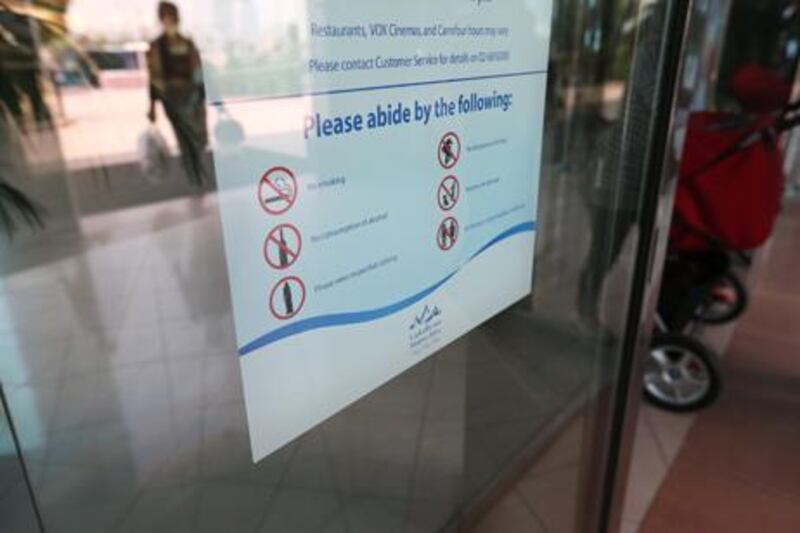ABU DHABI // Non-Muslims are being asked to dress modestly and respect UAE customs and culture during Ramadan.
The Tourism and Culture Authority of Abu Dhabi is warning that short or tight clothing can attract unwelcome attention and is best avoided.
Ladies are advised to cover their shoulders and legs.
“We do not advise a specific dress code during Ramadan; non-Muslims – both men and women – are asked to dress conservatively whenever they visit,” said Mohammed K Al Dhaheri, the director of strategy and policy at the authority.
“Public beaches, private hotel beaches and hotel pools will all be open as usual and you can continue to wear swimwear in these areas.
“Some hotel pools will also serve refreshments from poolside outlets. Swimwear is, of course, acceptable but we recommend guests use some common sense in their choice of swimwear.”
Most of these instructions are advised but some will be enforced.
K?K Sarachandra Bose, a lawyer with Dar Al Adalah Advocates and Legal Consultants, told Abu Dhabi Police’s magazine, 999, that “nudity is strictly forbidden in every part of the city and is liable to be punished by imprisonment or deportation”.
He said unwitting actions, such as inappropriate clothing choices, may offend because “Emiratis dress conservatively and expect expatriates also to dress conservatively when in public”.
The attitude towards dress is fairly liberal throughout the emirate but respect for local customs does not go amiss, especially when shopping or sightseeing, Mr Al Dhaheri said.
Apart from traditional oud music, generally no music is played during Ramadan, with nightclubs closed and no musical entertainment in pubs and bars, although they do remain open and serve alcohol after 7pm.
“Residents and visitors are asked to show respect for etiquette during Ramadan and are respectfully asked to refrain from eating, drinking or smoking in public places during daylight hours,” Mr Al Dhaheri said.
Non-fasting visitors are welcome to eat and drink in the privacy of their own room without offering food or drink to any Muslim guests, he added.
Children under 12 are not expected to fast, although they should be respectful of others around them who may be fasting, the authority suggests.
Mr Al Dhaheri said Ramadan was an opportunity for non-Muslims to learn about the traditions and beliefs of Muslims, and experience a completely different way of life.
For more information about the cultural implications of Ramadan, where to go, what to do and what to see, log on to www.visitabudhabi.ae.
anwar@thenational.ae






